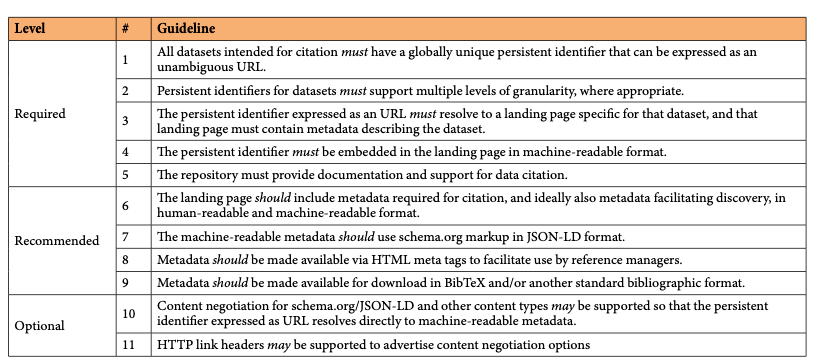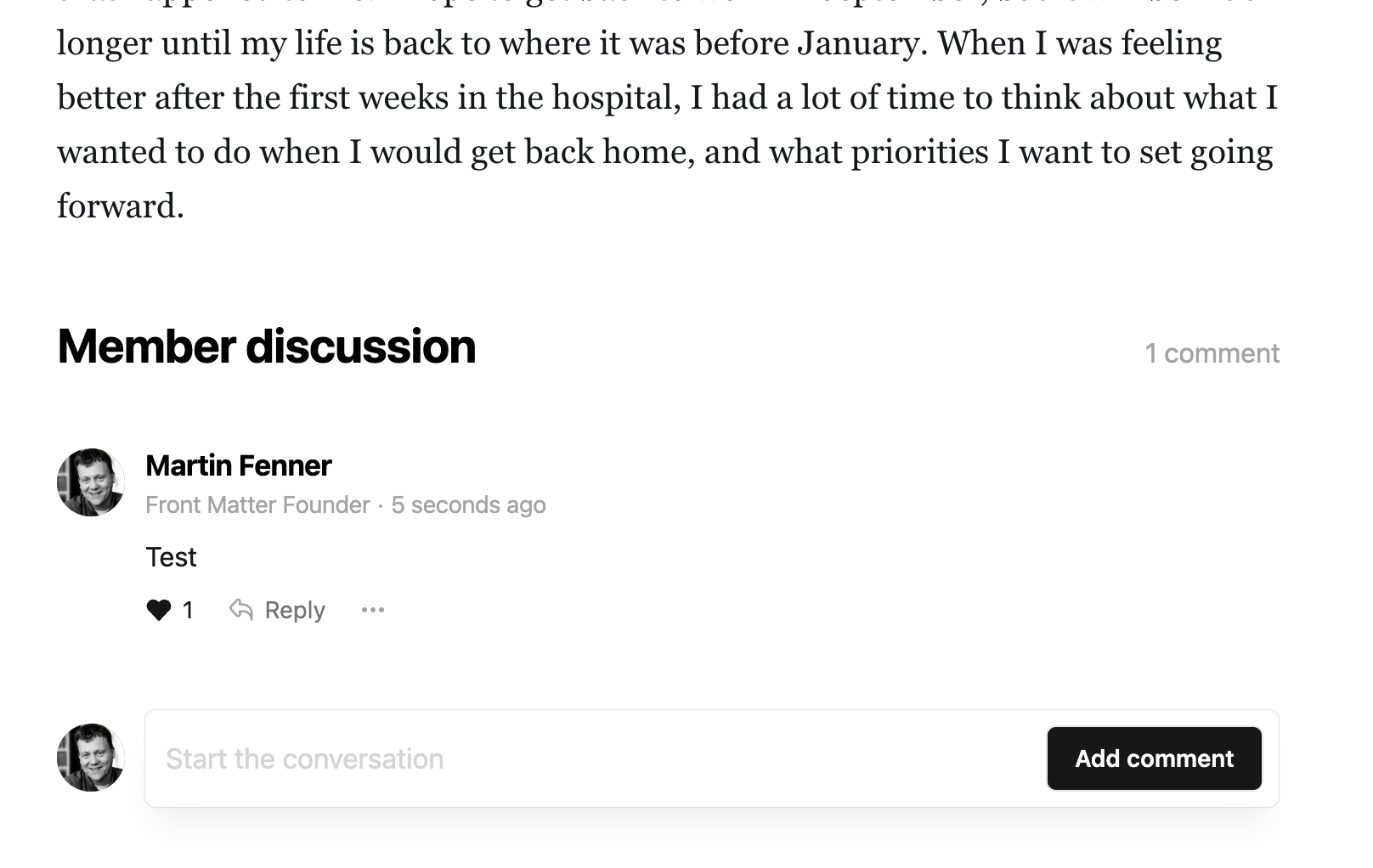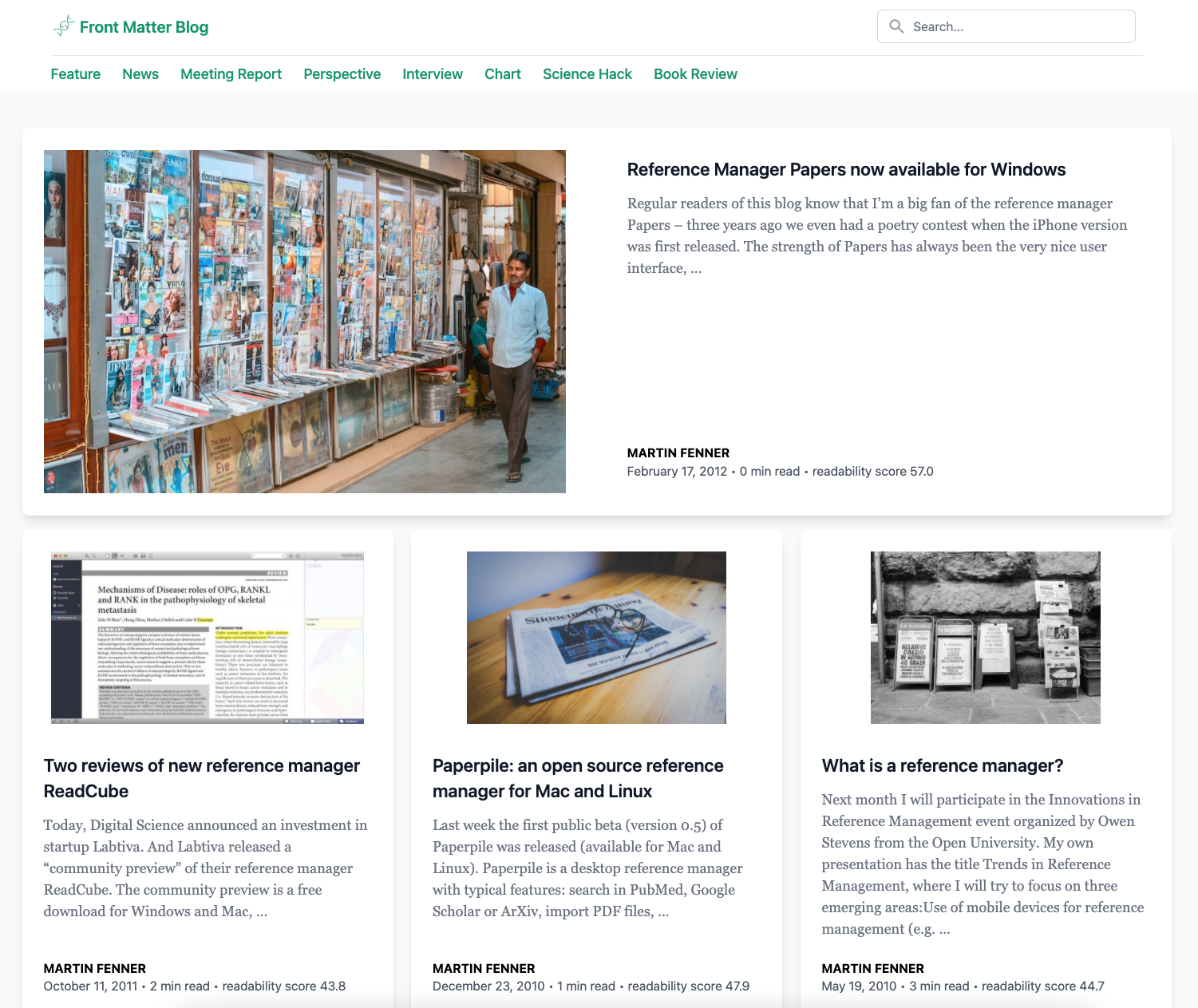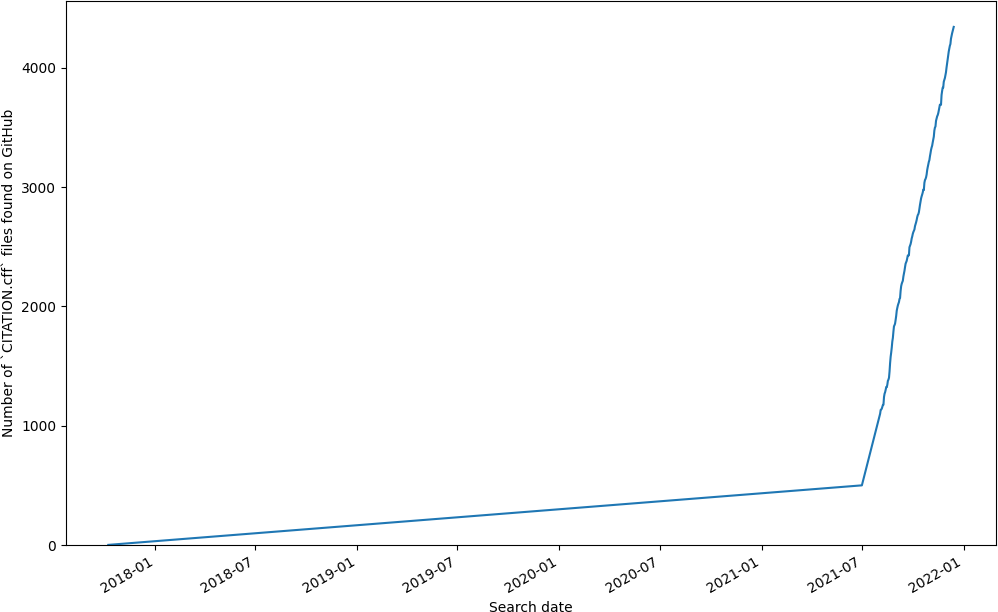
This blog post is a follow-up to a post in September (Fenner 2022a), where I announced that I had started working on an archive for scholarly blog posts based on the InvenioRDM open-source repository software.

This blog post is a follow-up to a post in September (Fenner 2022a), where I announced that I had started working on an archive for scholarly blog posts based on the InvenioRDM open-source repository software.

In August 2021 I joined the InvenioRDM project to help develop and host a modern repository platform for scholarly content. Things didn't exactly go as planned at the beginning of 2022, and I spent five months in the hospital with serious personal health issues. Since returning home in early June, my health has improved considerably, and in September I was able to slowly start working again.

Feature images are commonly used for blog posts, including on this blog. We can use our screenshots or photos or stock photos (ideally license free or with an open license) from sites like Flickr, Unsplash, or Pexels. More recently, we can also use artificial intelligence tools such as DALL·E 2 that generate images from a description in natural language.

This blog since earlier this month is no longer using a JAMStack setup but a regular Ghost setup using Ghost Pro for hosting. The primary driver were the new native search and native comments, but I needed to do a little bit of work to keep the DOI registration working. This is done now, and an added benefit is that DOI registration is now straightforward for any blog that uses Ghost as a platform.

Since last year this blog is powered by the Ghost open source blogging platform. Two important and long-standing shortcomings of the platform were search and comments, which I added via integrating third-party tools (Typesense and Discourse, respectively). In the last several weeks Ghost team has worked hard to add these features to the core platform, described here and here.

The first post on this blog was published on August 3, 2007 (Open access may become mandatory for NIH-funded research). This is post number 465, and in the past 15 years the blog has seen changes in technology and hosting location – but I wrote all posts (with the exception of a few guest posts). The overall theme remained unchanged: technology used in scholarly communication.

In January I woke up one day and couldn't move my right arm and leg properly. As I have high blood pressure, and my father had a stroke the exact day seven years earlier, I worried that I might have a stroke and went to the emergency room of the local university hospital.

The Front Matter blog is launching a new membership model today. In August 2021 this blog started offering optional paid membership via the Buy Me a Coffee service. Unfortunately. two things happened: a) Paypal dropped supporting Buy Me a Coffee for membership payments at the end of last year, and b) there wasn't really any uptake of this support model, even if only charging $3 (or a cup of coffee) per month.

Fresh into 2022, the Front Matter blog today is launching an important new feature: a full-text search of all blog posts. An example query would be for reference manager. As the Front Matter blog has a lot of posts about reference managers, a tag would also have worked in this particular case, but tags are much less flexible and become overwhelming when used too frequently.

In August GitHub added enhanced support for citation-file-format (CFF) to all GitHub repositories. As you can see in the chart below (kindly provided by Stephan Druskat and based on GitHub queries for CFF files), this has led to a significant increase of repositories using CFF files and thus exposing software metadata that go beyond what GitHub provides via other means.

The Force2021 conference will take place from December 7-9. The conference will be virtual, and registration is free. And we will again be hosting a Force2021 hackathon, as co-located virtual event on December 6 and December 10. We will meet for four hours each (1 PM - 5 PM GMT) and will communicate via Zoom.